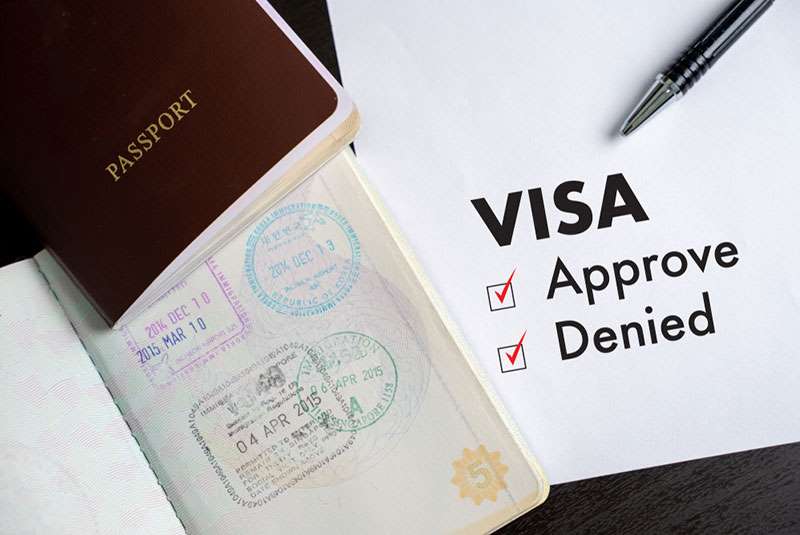Ghana's Visa Policy: Requirements, Exemptions, and Upcoming eVisa

Ghana, a beautiful West African country with a rich cultural heritage, has an intriguing visa policy that dictates the entry requirements and restrictions for travelers from various nations. Understanding the nuances of Ghana's visa policy is essential for anyone planning a trip to this fascinating land. In this article, we will delve into the different types of visas, visa exemptions, and the upcoming Ghana eVisa, an innovative system that promises to streamline the application process and boost tourism, business, and investment opportunities.
1. The Types of Visas for Ghana:
Ghana's visa law categorizes visas based on nationality, duration of stay, and purpose of visit. For citizens of many African countries and certain Caribbean territories, visa requirements are more relaxed. They can either enter Ghana visa-free or obtain a visa on arrival, allowing them to stay for 60 to 90 days.
However, citizens from almost all countries outside Africa must apply for a visa at the nearest Ghanaian diplomatic mission before departure. This application process grants various types of visas, such as tourist visas, work visas, student visas, and business visas, depending on the traveler's needs.
2. The Upcoming Ghana eVisa:
In a bid to expedite the visa application process and attract more visitors, Ghana is gearing up to introduce the Ghana eVisa. This online visa system will enable eligible travelers to obtain an approved electronic visa via email, eliminating the need to visit an embassy or wait in long queues at the border for a visa on arrival.
The Ghana eVisa will serve multiple purposes, including tourism, business, and transit. However, specifics regarding the length of stay and the number of entries permitted are yet to be announced.
3. Tourist Visa Policy for Ghana:
The tourist visa policy for Ghana requires most foreign nationals to apply for a visa before traveling for tourism purposes. While a few countries in Western Africa enjoy visa-free access, others must obtain an approved tourist visa, either from the consulate or on arrival.
Visitors from over 30 African nations can apply for a visa on arrival, but this process often involves long waiting times at immigration checkpoints. The introduction of an online tourist visa application is expected to streamline and expedite the process for eligible countries.
4. Ghana Visa on Arrival:
Ghana's visa on arrival is available to citizens of over 30 African Union countries for short stays of up to 30 days, catering to both tourism and business purposes. Travelers eligible for this option can obtain the visa at designated immigration checkpoints upon arrival in Ghana. However, those intending to stay longer than 30 days must apply for an embassy visa.
List of Countries that require Visa on Arrival
5. Embassy or Consular Visa Required:
For travelers from approximately 190 non-African countries (excluding Morocco), an approved embassy visa is a prerequisite for entering Ghana. This visa must be obtained in advance by visiting the nearest Ghanaian diplomatic office. Applicants will need to complete an embassy visa application, provide relevant personal and travel information, and select the appropriate visa type based on the purpose of their visit.
6. Visa Not Required:
Around 20 countries, primarily from Africa, enjoy visa exemption when visiting Ghana for short stays of 60 to 90 days. Holders of Ghanaian Dual Nationality Cards can also obtain a pre-arranged visa on arrival. However, if travelers intend to stay longer or for specific purposes, they must secure an embassy visa.
Visa Not Required Countries
Conclusion:
Ghana's visa policy plays a significant role in determining the ease of travel for visitors from different countries. Whether it's the visa on arrival, tourist visa, or the anticipated Ghana eVisa, understanding the requirements and exemptions is crucial for a smooth and enjoyable trip to this vibrant African nation. With the imminent introduction of the eVisa system, Ghana aims to facilitate tourism and business opportunities, making it an even more attractive destination for globetrotters. Keep a close eye on updates to stay informed about the latest developments in Ghana's visa policy before planning your journey.
Boost Your Business Growth with YouTube Shorts: A Complete Guide
YouTube Shorts have rapidly emerged as a powerful tool for businesses ai...
Essential Legal Tips Every Small Business Owner Should Know
Starting and running a small business can be an exciting venture, but it...
Secrets to Creating Customer Experiences That Leave a Lasting Impression
In today’s competitive market, creating a memorable customer exper...
Transform Your Local Business with These Social Media Strategies
In today's digital age, social media is an indispensable tool for promot...
Revolutionize Your Local Business: The Must-Know Marketing Trends of 2024
The world of local business marketing is ever-evolving, with new trends ...







